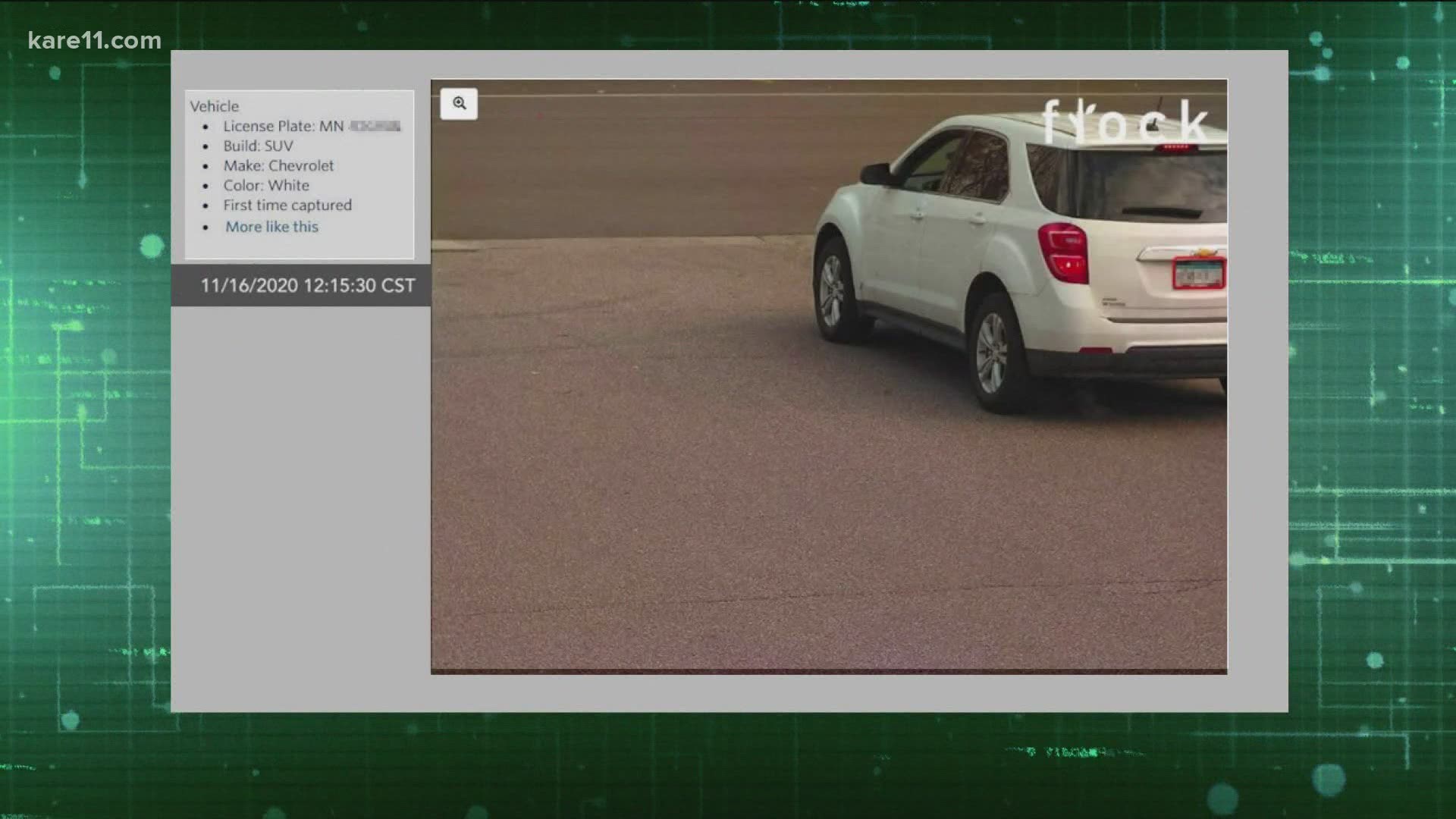PLYMOUTH, Minnesota — If you miss the camera, you'll definitely see the red sign warning visitors of 24/7 video recording. Families living in a subdivision near Heritage Park hired the Atlanta-based Flock Safety to install a license plate scanner near the single entrance to their neighborhood.
It's technology police have used for years, but is now available through security companies for private use.
"It captures images of vehicles as well as their license plates, and it also uses character recognition to be able to identify exactly what that plate is and what state it's from," Jim Russell of Plymouth told KARE 11.
Russell was easily able to go into his computer and retrieve a clear, still photo of our KARE 11 photographer’s news vehicle when he arrived for the interview. That file include a readout of the plate number, vehicle type, vehicle color and a time stamp.
"We do have a lot of doorbell cameras and a lot of exterior lighting cameras around, but none of them were designed to actually read license plates, which is the number one thing that's needed."
Flock Safety charges $2,500 per camera. Russell's neighborhood has only one way in and out, so the cost was limited. It's paid for by all 37 homeowners in the neighborhood, which comes out to about $50 per household per year.
Russell said the board members have access to the system, but anyone who belongs to the association can get access if they need to file a police report.
"If someone entered in a particular time frame, you can get different license plates, and with that it’s up to the victim then to submit a police report, on which, the number one thing police would like to see are license plates of vehicles that came into or out of the neighborhood."
Residents can log in and enter their own license plate numbers, which helps to highlight plates that normally aren't in that residential enclave.
Russell said the neighbors decided to invest in the license plate reader after an uptick in crime over the summer and realized that photos of vehicles without plate numbers weren’t all that useful to investigators.
"We’ve had an increase in mail theft. In fact, I actually got some printer cartridges stolen out of my mailbox, and then also one of the residents here came upstairs to find a stranger standing in her kitchen!"
To address privacy concerns, Flock Safety only stores information for 30 days. Neighbors who have access to this footage only see plate numbers. They don't see names that go with the cars or see faces of the drivers.
"I think privacy is a real concern when it comes to technology. You’ve got to be thoughtful about who has access to the footage, for how long, what can they do with it," Joshua Thomas of Flock Safety told KARE 11.
“There are going to be tradeoffs, a balance when it comes to this sort of thing, but we believe it's possible to live in a world where you're both stopping crime and protecting privacy."
Thomas says Flock Safety now has cameras in 10,000 different cities across 40 states that help law enforcement solve crimes ranging from thefts to stranger abductions.
"For a private community you have to file a police report. You put the information in and send it to police, and then they pull the footage."
The more advanced option offered by the company automatically pings local police if it detects a plate that's on the NCIC's national "Hot List" of stolen cars or vehicles connected to wanted individuals.
The neighborhood association near Heritage Park in Plymouth isn't using that feature at this point. In the two months since the scanner was installed, they haven't had to turn over any license plate numbers to police as part of formal report.
But they believe it may already be providing a deterrent to would-be serial mailbox thieves.
"It’s a great neighborhood, a lot of kids in the neighborhood, and this license plate scanner provides a lot of peace of mind knowing all the kids in the neighborhood like to play outside and we know who’s here and who isn’t,” Russell said.

